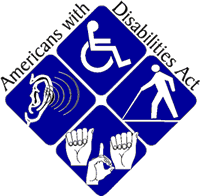Ohio disability discrimination lawyer
According to a joint study by Syracuse and Rutgers Universities, employers are generally far less likely to hire applicants who reveal they have a disability. Individuals with a disability applying for jobs should take note. If you have a disability, learn how to protect your rights by speaking with a disability discrimination lawyer.
 Applicants who disclose a disability are less likely to be hired
Applicants who disclose a disability are less likely to be hired
In the study, researchers sent out thousands of mock résumés and cover letters for fictional job applicants in the accounting industry. The applications were identical, except that for some, the cover letters revealed the existence of a supposed disability, either a spinal cord injury or Asperger’s Syndrome. According to the study, the “candidates” who revealed a disability received interest from prospective employers about 26% less frequently than the candidates who did not.
The findings are not hard to believe. When Congress passed the Americans with Disabilities Act in 1990, it did so in the face of significant evidence that individuals with disabilities have historically faced overwhelming discrimination in hiring, and have had far higher rates of unemployment than the general population.
The study did have some encouraging findings however. It suggested that hiring bias against individuals with a disability was not statistically significant in all workplaces. For larger employers (those with more than 15 employees) and those receiving federal contracts, the disparity seemed to disappear. Not coincidentally, both types of employers are covered by federal laws prohibiting disability discrimination in employment.
What can my employer ask about my disability?
So what does the law say about whether employers can ask applicants if they have a disability? The Americans with Disabilities Act and Ohio law both prohibit discrimination against individuals with disabilities in hiring. Employers cannot typically refuse to hire individuals because they have a disability if they are able to do the main functions of the job. In turn, the disability discrimination laws also specify what employers can and can’t ask candidates about their medical conditions.
 At the pre-hiring stage, before an offer is extended, employers may ask about the ability of an applicant to perform “job-related functions,” and may ask applicants to explain or demonstrate how they would perform those functions, either with or without a reasonable accommodation.
At the pre-hiring stage, before an offer is extended, employers may ask about the ability of an applicant to perform “job-related functions,” and may ask applicants to explain or demonstrate how they would perform those functions, either with or without a reasonable accommodation.
After a job offer, but before the employee begins work, the restrictions are somewhat different. At that stage, an employer may condition an offer of employment on the results of a medical examination. The employer can ask about the individual’s health, but only “if all entering employees in the same job categories are subjected to [the same examination or inquiries].” This balances the needs of the employer and the rights of the applicant.
Once an individual is officially employed, an employer may require a medical examination or ask about the employee’s health only if it is “job-related and consistent with business necessity.” Whether an inquiry is permissible in these situations tends to be a very fact-specific question.
Should I tell my employer I have a disability?
There’s a good reason employers can’t outright ask whether an employee has a disability: employees with disabilities risk being denied equal opportunity at work. With that in mind, don’t volunteer that you have a disability when applying for a job or to your current employer. Instead, any conversation about your health should center on your ability to perform the essential job functions. If reasonable accommodations are necessary to perform those functions, the employer should interact with you to find an accommodation that would work.
Disability discrimination lawyer for Ohio employees
Disability discrimination is perhaps the most frequent employment law claim we see in our practice. Sometimes employers simply do not understand the law. Other times, employers are motivated by stereotypes about people with disabilities. Either way, if you believe you have been discriminated against on the basis of disability, contact a Cleveland disability discrimination lawyer at Bolek Besser Glesius LLC today.

 Applicants who disclose a disability are less likely to be hired
Applicants who disclose a disability are less likely to be hired
Leave a Reply